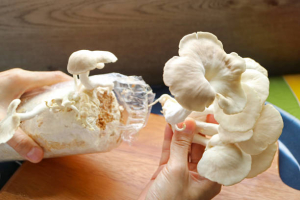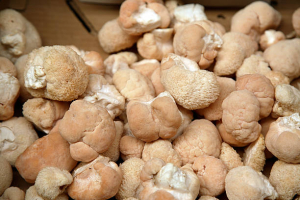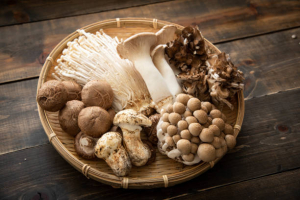Top 7 Health Benefits of Enoki Mushrooms
A pleasant and adaptable mushroom, enoki mushrooms are renowned for their mild flavor and crisp texture. Enoki mushrooms often referred to as winter mushrooms ... read more...or golden needle mushrooms, are widely grown throughout North America, Europe, and Asia and used in a variety of cuisines. They provide a distinctive flavor and scent to a variety of foods, and they may provide a lengthy list of health advantages. The most striking health advantages of them are listed below.
-
Enoki mushrooms (Flammulina velutipes) are rich in a variety of nutrients, including fiber and B vitamins. One cup (65 grams) of raw enoki mushrooms contains:
- Calories: 24
- Protein: 2 grams
- Fat: 0.2 grams
- Carbs: 5 grams
- Fiber: 2 grams
- Niacin: 29% of the Daily Value (DV)
- Pantothenic acid: 18% of the DV
- Thiamin: 12% of the DV
- Riboflavin: 10% of the DV
- Copper: 8% of the DV
- Folate: 8% of the DA
- Phosphorus: 6% of the DV
Niacin, a vitamin your body utilizes to manage cholesterol and support brain function, is particularly abundant in enoki mushrooms. A healthy quantity of pantothenic acid (vitamin B5) is included in each serving of enoki mushrooms, which your body requires to make fatty acids, Enoki mushrooms are also a great source of thiamine, which controls how your nerve cells work.

Highly nutritious 
Highly nutritious -
Antioxidants are abundant in enoki mushrooms. Additionally, antioxidants may help prevent many chronic disorders, such as heart disease, cancer, and type 2 diabetes. These molecules can help neutralize dangerous free radicals to protect your cells from damage and oxidative stress. One review reported that enoki mushrooms contain a variety of antioxidants, including:
- Gallic acid
- Quercetin
- Ferulic acid
- Caffeic acid
- Chlorogenic acid
- Ellagic acid
- Pyrogallol
According to the review, the exact types and amounts of antioxidants found in enoki mushrooms can vary depending on several factors, including where the mushrooms are grown and the specific subspecies.
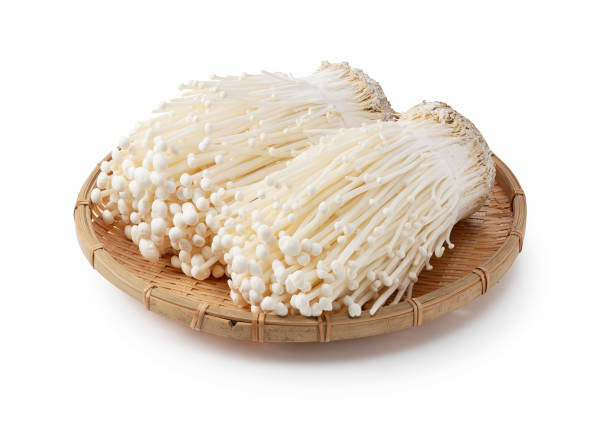
Rich in antioxidants 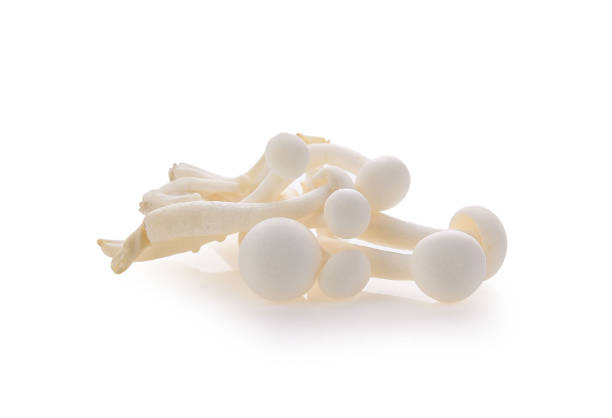
Rich in antioxidants -
Some test-tube studies indicate that enoki mushrooms may have potent cancer-fighting abilities, but further human trials are required. One earlier test-tube study, for instance, suggested that enoki mushroom extract could have prevented the spread of liver cancer cells. Eight extracts of medicinal mushrooms, including enoki mushrooms, were evaluated in another test-tube investigation to determine their effects. It was discovered that all eight extracts may have slowed the spread of breast and cervical cancer cells.
Additionally, a previous test-tube study discovered that certain chemicals derived from enoki mushrooms may 95 percent block the development of stomach cancer cells. However, take in mind that all tests were done in test tubes, and the enoki mushroom extract utilized was quite concentrated. Therefore, more studies should be done to ascertain how enoki mushroom consumption at proportions typically seen in food may impact the development of cancer in humans.
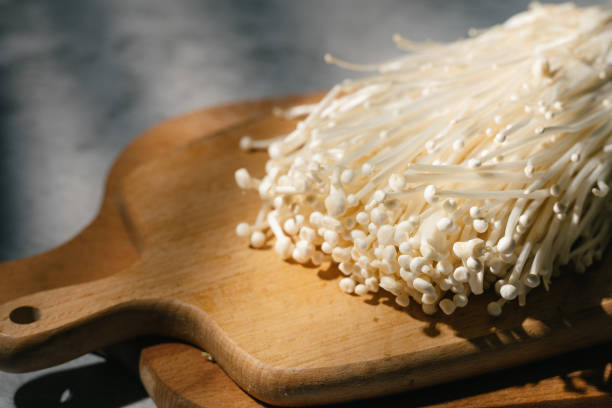
May slow cancer cell growth 
May slow cancer cell growth -
Enoki mushrooms have been shown in studies to support several elements of heart health. For instance, research on animals revealed that hamsters given enoki mushroom extract or powder had lower triglyceride, total, and LDL (bad) cholesterol levels than those in a control group.
Another test-tube study found that enoki mushrooms' antioxidant content may help reduce the development of atherosclerosis, a risk factor for heart disease that is defined by the accumulation of fatty plaque in the arteries. Enoki mushroom extract may also lower blood pressure, cholesterol, and triglyceride levels, according to numerous earlier animal studies. Even yet, further human studies are required to determine how eating enoki mushrooms as part of a balanced diet may improve heart health.
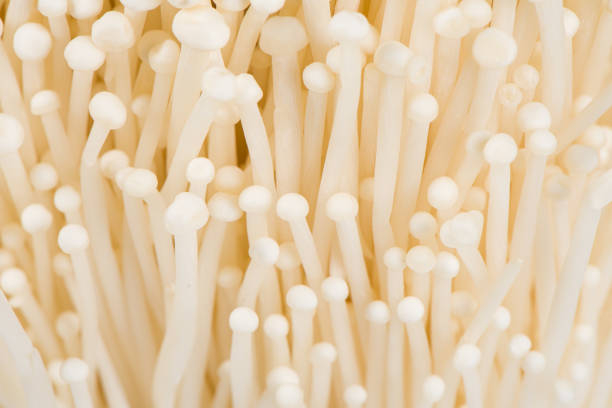
May support heart health 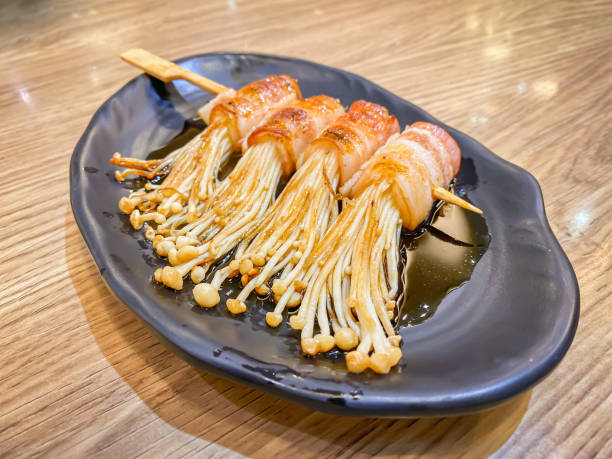
May support heart health -
Enoki mushrooms have an interesting potential to improve memory and brain function, according to some promising studies. In one study on animals, chemicals taken from enoki mushrooms provided defense against learning and memory deficits brought on by a particular medicine linked to memory loss. Additionally, this enoki mushroom extract trial therapy raised the concentrations of several neurotransmitters and antioxidants in the brain.
Another animal research made similar observations, suggesting that combining ginsenosides, a substance present in ginseng, with enoki mushroom extract may enhance brain function in rats suffering from Alzheimer's disease. Enoki mushroom extract may also help stop the breakdown of acetylcholine, a neurotransmitter that controls attention, learning, and memory, according to earlier test-tube research. To find out if eating enoki mushrooms in your diet has similar advantages, more research should be done.

May improve brain function 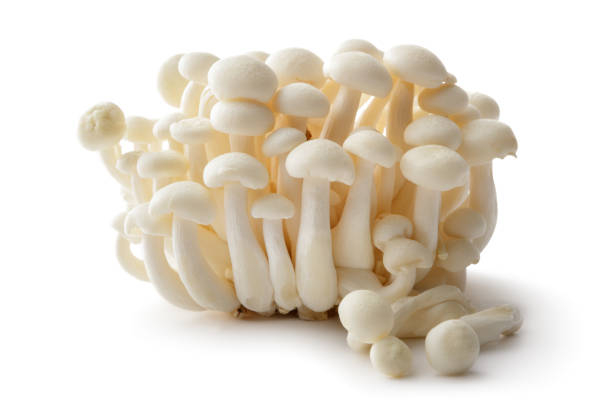
May improve brain function -
Enoki mushrooms, which are rich in antioxidants and other nutrients that are good for you, may also strengthen your immune system. One animal research found that giving mice substances taken from enoki mushrooms enhanced the number of certain immune cells. Enoki mushroom proteins decreased airway inflammation in a different investigation on mice suffering from a viral respiratory illness.
Enoki mushroom extract may also stimulate the creation of immune cells to promote good immunological function, according to several additional test-tube and animal studies. More reputable investigations into people are still required despite these encouraging results. Enoki mushrooms might provide you with a boost in immunity if you're trying to strengthen your defenses against illnesses.
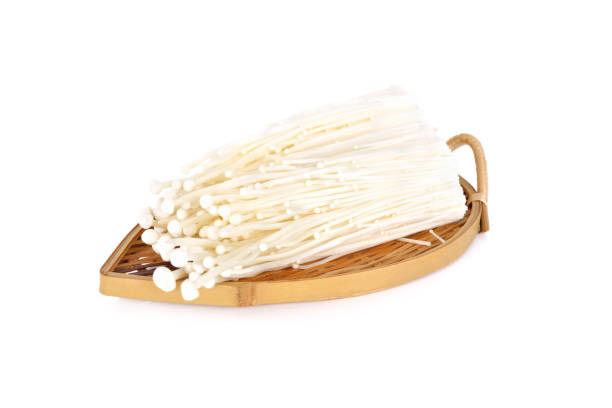
May enhance immunity 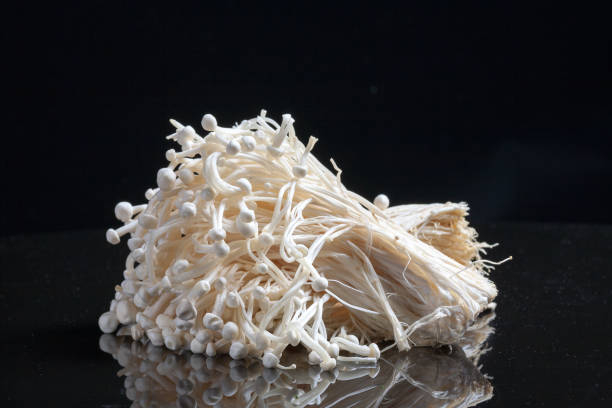
May enhance immunity -
Increasing your regular intake of fiber has various benefits, including decreasing your cholesterol and helping you lose excess weight. In addition, dietary fiber has the advantage of enhancing blood sugar regulation. Better blood glucose regulation causes less sugar to be stored as fat, which has a negative impact on weight gain.
Dietary fiber, which is abundant in enoki mushrooms, can help you control your blood sugar levels. Blood sugar spikes cause insulin levels to rise, signaling the body to accumulate fat. However, fiber may improve blood sugar levels merely by lessening the impact of blood sugar levels on insulin. In other terms, it slows down the body's absorption of sugar. In effect, you prevent the body from accumulating fat by reducing the impact bloodstream glucose has on insulin. It also functions as a preventative strategy for type 2 diabetes.
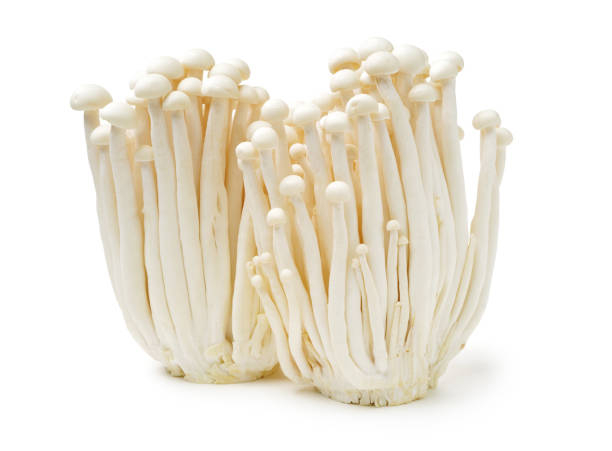
Balance sugar level 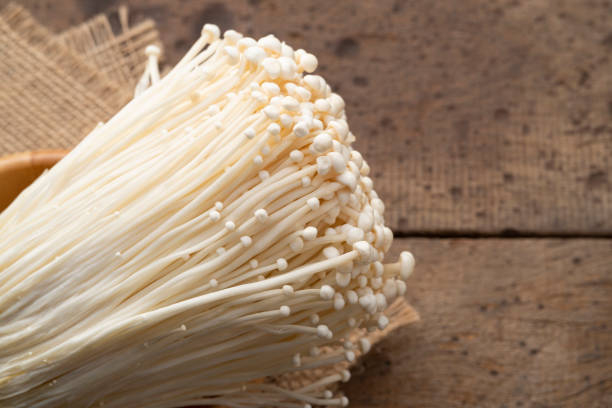
Balance sugar level











